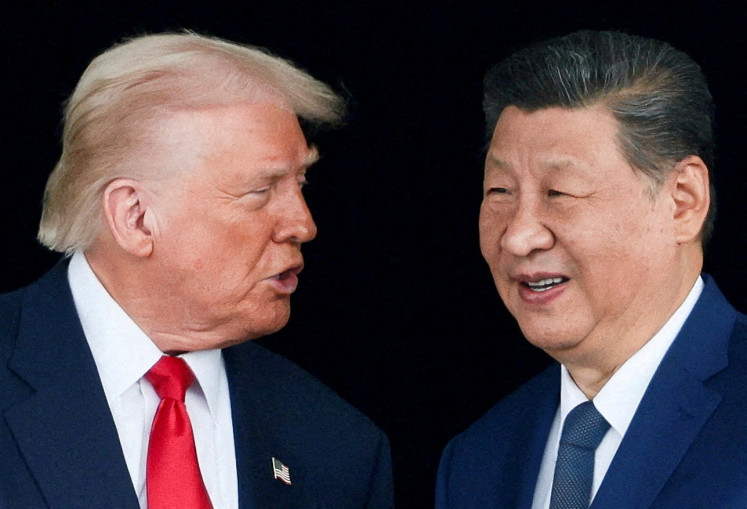Popular Reads
Top Results
Can't find what you're looking for?
View all search resultsPopular Reads
Top Results
Can't find what you're looking for?
View all search resultsChina approves plan to raise retirement age from January 2025
Beijing faces looming demographic crisis and an older population
Change text size
Gift Premium Articles
to Anyone
C
hina's top legislative body has approved a proposal to raise the country's retirement age, the official Xinhua news agency said on Friday, accelerating an overhaul of decades-old laws to tackle the economic pressure of a shrinking workforce.
China's retirement ages are currently among the lowest globally.
Reform is urgent with life expectancy in China having risen to 78 years as of 2021 from about 44 years in 1960 and projected to exceed 80 years by 2050. At the same time, the working population needed to support the elderly is shrinking.
The retirement age will be raised for men to 63 years old from 60, while for women in white collar work it will be raised to 58 years from 55. For women in blue collar work it will be increased to 55 from 50.
The changes are set to come into force on Jan. 1, 2025, and be implemented over a 15-year period.
Having people work for longer would ease pressure on pension budgets with many Chinese provinces already reeling from large deficits. But delaying pension payouts and requiring older workers to stay at their jobs longer may not be welcomed by all of them.
Hundreds of thousands of people took to social media after Xinhua reported that China's top lawmakers discussed the topic on Sept. 10, with many expressing concern there would be more job seekers chasing too few openings.
By raising the retirement age, the government can increase the labor force participation rate, helping to mitigate the adverse effects of population aging, said Xiujian Peng, senior research fellow at the Centre of Policy Studies at Victoria University in Australia.
"The government must take action. If the population continues to decline, the shrinking of the labor force will accelerate, further negatively impacting economic growth."
Xing Zhaopeng, ANZ's senior China strategist said the move would have little short-term impact but help maintain stable productivity growth in the long run.
Wang Xiaoping, Minister of Human Resources and Social Security, said on Friday that the raising of the retirement age would be done gradually, with the adjustment starting from next year but taking 15 years to fully implement.
It would be done on a flexible and voluntary basis whereby an employee can choose to retire earlier or extend retirement for a period of up to three years, she said.
Outdated retirement ages have resulted in a growing number of retirees and a declining pool of active workers, said Bruce Pang, chief economist China at Jones Lang LaSalle.
In China, authorities expect the cohort of those aged 60 and older to rise from 280 million to more than 400 million by 2035, equal to the populations of the United Kingdom and United States combined.
Eleven of China's 31 provincial-level jurisdictions are running pension budget deficits, finance ministry data shows. The state-run Chinese Academy of Sciences said the pension system would run out of money by 2035 without further reform.
China's move aligns it more closely with its regional peers, Japan and South Korea, where people can only receive pensions at 65 and 63 years, respectively.










